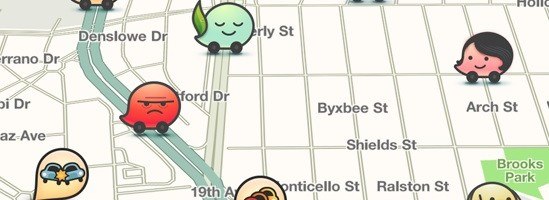The Waze model – make your users do the work!

Combining a large community of users with a navigation app makes Waze well positioned for the future
Waze, the world’s largest community based traffic and navigation app, was acquired by Google in 2013 for $966 million. Although Google plans to merge Waze and its team with Google’s mapping division, the Waze app is for the time being still available in its original form. Why does Google, and a number of industry experts, consider Waze a winner for the future?
Waze’s users are essentially adding value to the app itself, every single time they use it. Waze is able to offer its traffic and navigation app for free to its users, while at the same time capturing significant value.
Waze creates value to users through other users
Waze is able to better leverage the network effects than most other mobile applications – every minute the app is used makes it better, as the app gets more data to help its maps provide the most up to date recommended driving routes for its users. The app shares real-time traffic and road info (“saving everyone time and gas money on their daily journey”) with the value proposition to its users being that you will get the best route, every day, with real time help from other drivers.
Moreover, Waze is able to look at traffic from a human perspective, differing from traditional map technology. As Google Car and other related driverless car efforts have discovered during testing, machines & technology do not always interpret situations correctly (e.g. a policeman rerouting traffic). Users of Waze are able to make sense of such situations and communicate it to other users, indicating that the “Waze-model” can potentially be a key part in unlocking value in the driverless car industry of the future by sharing human-made updates with driverless cars.
Waze already captures value and has the potential to scale and impact new industries
Users are more likely to respond to messages related to themselves, their location, what they are doing and specific to the time they are sent. Waze currently sells location-based advertising and can also sell traffic data and map data to competitors and other companies. For example – with your user profile and knowledge of your time and place, Waze is able to offer value to local advertisers, such as the local McDonald’s restaurant, that is looking for customers in the near future at that specific location. Moreover, there is significant additional value capture potential in the market: Waze has ~50 million members, but there are over 1 billion vehicles in the world.
Going forward, community-based apps and location-based apps are likely to be central in a high number of industries. Waze consists of both elements. With its head start on competition in a community based business (and adding 150,000 new members every day, according to Co-founder Uri Levine), Waze is well positioned to remain the market leader in this segment. The future is likely to unlcock new value capturing opportunities for Waze, in areas such as driverless cars, tourism and security. At the same time, the app will continue to create value to its users for free – which seems reasonable, as they are essentially the ones doing the work.



Crowdsourcing traffic and road information made all the difference for Waze, as it allowed for real time updates for users. This enabled Waze to create more value for users that Google Maps (Waze is the user-preferred app for driving navigation). Waze has also been more effective at capturing value through ad revenue. I agree: WAZE = WINNER!!
http://www.techtimes.com/articles/37279/20150305/google-maps-vs-waze-which-navigation-app-is-better.htm
Interesting read Fridtjof!
I haven’t used Waze yet – do you know if it also includes information on available public parking space? This would be a great contribution to alleviate urban traffic as around 30% of congestion is caused by drivers looking for a parking space. Some apps allowed users to “sell” public parking spots but have had problems with regulation – and I think rightly so (http://techcrunch.com/2014/06/23/parking-apps/). It seems like Waze users contribute without monetary incentives. It would be great if it worked with parking as well.
Thanks! I have heard of some apps trying to “sell” parking spots and the issues they have faxed – agreed, great if Waze is able to make this work, should have a good starting point with its substantial user base
Really like your point about combining the human interaction with technological capabilities, and I agree that’s what sets them apart. I’m curious what implication you think Google’s recent acquisition will have on both products’ business models, if any?